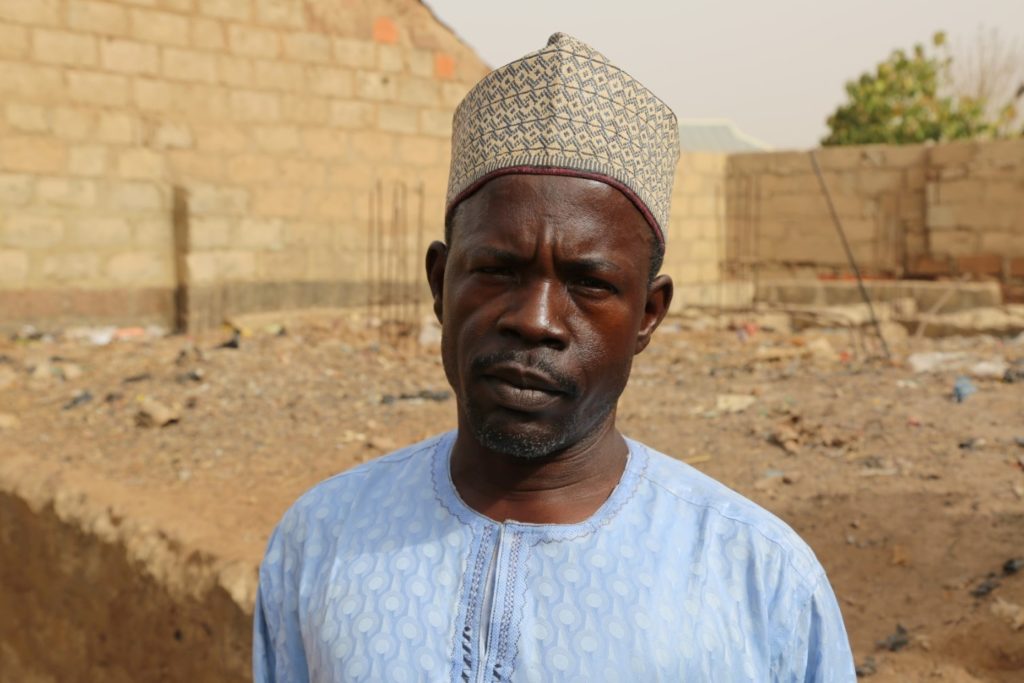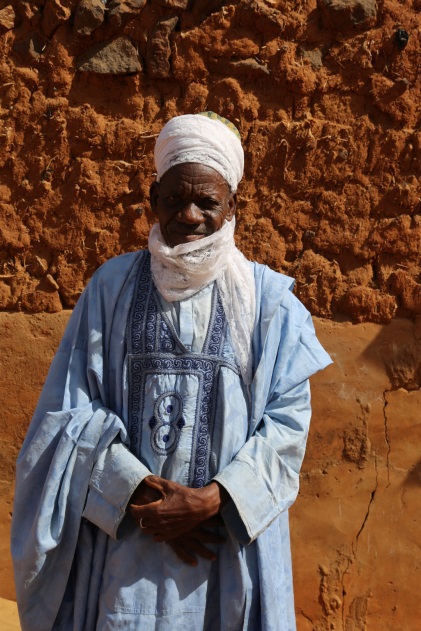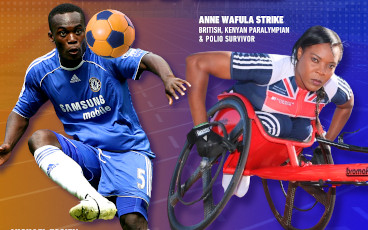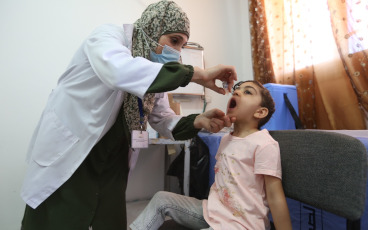Leading the Way to a Polio-Free Nigeria
Traditional leaders are taking action to get more children vaccinated and to rid northern Nigeria of polio, once-and-for-all.

In northern Nigeria, the notion of community development ‒ collective ownership and action taken by locals to tackle issues such as disease, illiteracy and poverty ‒ is a powerful thing. Formal structures and networks exist at the Local Government Area (LGA) level, down to the ward and even village levels, to help facilitate meaningful and sustainable change. And for Global Polio Eradication Initiative (GPEI) partners working to once-and-for-all rid Nigeria of the crippling poliovirus, success hinges on tapping into these networks.
Of key importance in the social hierarchy and the fight against polio are traditional leaders such as village and district heads. Although they wield no formal political power, these leaders who have retained their titles since pre-colonial times continue to command the respect of their local communities. Ahead of polio campaigns, traditional leaders lead social mobilization committees to raise awareness of polio immunization and routine immunization more broadly. During campaigns, they help to oversee the vaccination of children in their villages and wards. Importantly, these leaders also use their influence to address cases of vaccine refusal, or ‘non-compliance’, when they arise.

Building trust in vaccines
While overall acceptance of polio immunization is extremely high – nationally, less than 1% of caregivers refuse vaccination – clusters of non-compliance in vaccination campaigns in northern Nigeria still hinder efforts to reach every child with oral polio vaccine (OPV), which is critical to eliminating the poliovirus. For some caregivers, skepticism of the vaccine’s safety and effects is a barrier to acceptance. For others, it’s not understanding the need for multiple OPV doses in order to build stronger immunity.
When vaccinators and community mobilizers are unable to persuade families to allow polio vaccination for their children, traditional leaders are called upon. They help explain to parents the importance of vaccination for healthy children and a healthy society. To combat misinformation and rumours relating to the polio vaccine, they team up with local religious leaders such as Imams and Islamic scholars to reassure caregivers that vaccination is safe and effective and in line with Islamic principles and practices. In most cases, these types of interventions result in hesitancies being eroded and families seeing the benefits of polio vaccination.
An important contribution
“Engaging traditional leaders at all levels has been most effective in reducing cases of non-compliance across the country,” said Dr Anis Siddique, UNICEF Nigeria’s polio chief. “These people are woven into the fabric of Nigerian society and this kind of affirmation of the benefits of vaccination by trusted local figures is helping families to make the right decision to vaccinate,” he said.
“We greatly appreciate the support of traditional leaders as well as religious leaders,” said Dr Fiona Braka, polio team lead for WHO Nigeria. “These people are highly influential in Nigerian society and we will continue to rely on their support to help sensitize communities on polio and other vaccine preventable diseases, and the need for repeated vaccination until [polio] transmission is stopped for good,” she said.
Nigeria was declared polio-free in September 2015, however cases discovered in 2016 in the country’s remote north-east put it back on the list of endemic countries alongside Pakistan and Afghanistan.
In addition to polio, traditional leaders are being engaged by GPEI partners to help address other important health issues such as routine immunization, sanitation and hygiene, nutrition and ante-natal care.












